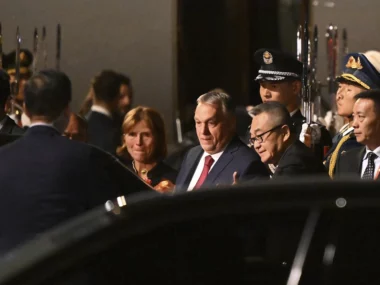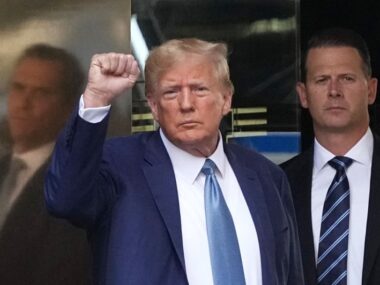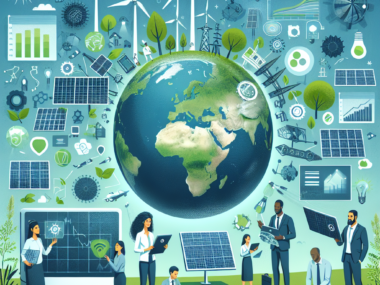Beyond Borders: How Climate Change is Redrawing Global Power Dynamics
As we navigate the 21st century, one undeniable truth reshapes not only our environment but also the very fabric of global society: climate change. Traditionally perceived as an environmental challenge, climate change now emerges as a significant driver of geopolitical shifts, economic reconfigurations, and social upheavals. The urgency to mitigate its effects and adapt to new realities is redrawing the world map, altering alliances, and reshaping power dynamics across the globe.
The Climate Crisis: An Inevitability for All
Climate change is an omnipresent threat that transcends national borders. From rising sea levels to increased frequency of extreme weather events, its impacts know no limits. Low-lying nations, like the Maldives and Bangladesh, face existential threats that endanger their very existence, while countries with significant infrastructure investments, such as the United States and China, encounter challenges in protecting assets and populations. Whether through flooding, droughts, or heatwaves, the consequences are unified in their potential to disrupt lives and economies globally.
As natural disasters become more frequent and severe, countries must adopt strategies not only for immediate response but also for long-term prevention and mitigation. The resultant scramble for resources—fresh water, arable land, and energy—places heavy pressure on political relationships and may provoke intense competition among nations. The race for renewable energy technologies further illustrates how climate change is integrated into the global economy, where countries that excel in green technologies gain a competitive edge.
Redrawing Alliances and Rivalries
The geopolitical landscape is adaptively shifting in response to climate change. Traditional alliances are being challenged as nations reassess their strategic priorities in the wake of environmental crises. For example, Arctic regions, once locked in ice, are increasingly accessible due to melting glaciers. This transformation has heightened geopolitical interest, with Arctic nations vying for control over the newly exposed natural resources, including oil and gas reserves, as well as new shipping routes.
China’s Belt and Road Initiative (BRI) is another illustration of how climate change is reshaping power dynamics. Countries involved in the BRI must now grapple with the environmental impact of new infrastructure endeavors and the economic interests tied to climate resilience. Nations looking for foreign investment have begun prioritizing sustainability, resulting in a shift in diplomatic engagements that favors those committed to climate action.
Conversely, traditional powers face pressure to adapt to changing realities or risk losing influence. European nations are leading by example with their ambitious climate policies, often positioning themselves as leaders in the global fight against climate change. This response is not merely altruistic but deeply pragmatic, as those who embrace sustainable policies may find themselves at an economic advantage and able to assert moral leadership on the international stage.
Economic Repercussions and Opportunities
Climate change is reshaping not only international relations but also the global economy. Industries reliant on fossil fuels must pivot to more sustainable practices or face obsolescence. This transition is creating new economic opportunities in renewable energy, electric vehicles, and sustainable agriculture. Nations heavily investing in green technologies and innovation are likely to secure significant economic leverage and steer global markets towards more sustainable practices.
However, the transition poses challenges for economies that depend on traditional industries. Coal-reliant regions in the U.S. and Europe are experiencing economic pain as jobs vanish and people are displaced, leading to social unrest that echoes in political shifts. Ensuring a Just Transition for these communities is crucial, as unchecked economic hardship may erode public support for climate initiatives.
As nations brace for climate-induced conduct, it is evident that adapting to new economic realities is not just beneficial; it is vital for national stability and international cooperation. Countries that fail to act may find themselves not only dealing with environmental crises but also navigating heightened political tensions and social instability.
The Role of Global Governance
Addressing a challenge as pervasive and complex as climate change requires collaborative global governance. Institutions like the United Nations, the Paris Agreement, and various international climate forums seek to foster cooperation among nations, emphasizing the need for shared responsibility and accountability. However, significant divides persist between developed and developing nations regarding liability, capacity, and resource allocation.
The climate crisis amplifies existing disparities, with developing nations often bearing the brunt of climate impacts despite contributing the least to the problem. As resources become scarcer, the question of equitable access is paramount. Global governance must not only address mitigation efforts but also prioritize adaptation strategies and equitable resource distribution to avoid exacerbating inequalities.
Conclusion: A Call to Action
Climate change is not just an environmental issue; it is a catalyst for change that influences global power dynamics, economic structures, and societal norms. As nations confront this mounting challenge, they find opportunities for collaboration and innovation. The future landscape will likely favor those who not only prioritize climate action but also embrace resilience as a guiding principle.
In this era of climate upheaval, it is imperative that nations rise above parochial interests and transcend traditional rivalries, recognizing that true leadership in the 21st century will require navigating beyond borders. Only through cooperative efforts and shared understanding can we hope to mitigate the effects of climate change and create a more equitable and sustainable world. The reconfiguration of global power dynamics is not only a possibility; it is a necessity in our collective journey towards a more resilient future.











